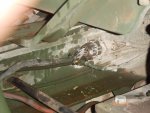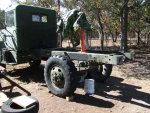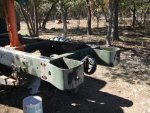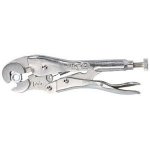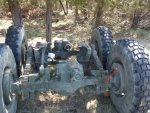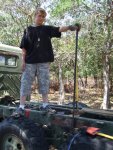Awesome Possum
New member
- 212
- 0
- 0
- Location
- Central Texas
We'e almost finished with our Bob, but I've had to replace thwe hydraulic brake line that runs along the left side of the frame. When bloting this to the tee fitting just under the rear of the cab (left side) I tried to remove one of the other brake lines. I did use the special wrenches for the job, but still managed to strip the hex off the outside of the nut. I don't want to use something like a vise grip that would crush the nut. Any suggestions as to how to get it off while still being able to use the line? The line disappears into a dark hole which I don't have the dexterity or eyesight to follow in order to replace.
Any help would be appreciated here, including the offending tee and possibly someone in the area of Ft Hood who'd be willing to do the job right for a price. Ths SS Rally in College Station is in two weeks and Badga has been really looking forward to it.
Any help would be appreciated here, including the offending tee and possibly someone in the area of Ft Hood who'd be willing to do the job right for a price. Ths SS Rally in College Station is in two weeks and Badga has been really looking forward to it.
Attachments
-
61 KB Views: 59
-
102.6 KB Views: 52
-
102.8 KB Views: 44



